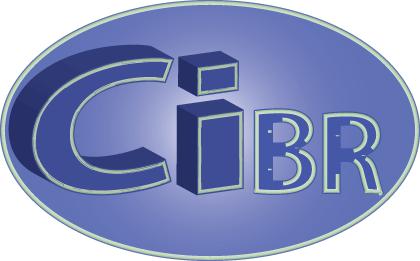Romania's Implementation of Revised Compliance Regulations for Non-Resident Taxpayers under SAF-T

The introduction of SAF-T Romania brings about a significant change in tax reporting for non-resident taxpayers, with new compliance requirements set to go into effect in January 2025. The initial deadline for filing is February 28, 2025, and applies to all transactions made in January by VAT-registered non-resident companies. The Romanian tax authorities have granted a grace period until July 31, 2025, but failure to comply after this date may result in penalties of up to 1,000 EUR for late submissions. These changes pose new challenges as businesses will need to adjust their accounting processes to adhere to specific reporting requirements, including sales, purchase invoices, and tax codes. The implementation of this automated and centralized system for collecting VAT data aims to simplify tax compliance and reduce reporting errors.
The ANAF has implemented new requirements for SAF-T in regards to non-residents.
The phased implementation schedule for SAF-T reporting requirements has been set by the ANAF, the Romanian National Agency for Fiscal Administration. Large taxpayers were required to comply starting from January 2022, while medium taxpayers will follow in January 2023. Companies that are not based in Romania but have a VAT registration number in the country must also comply, starting from January 1, 2025.
The main emphasis of the updated guidelines is on sales and procurement receipts, as well as tax codes for enterprises outside the country. Additionally, ANAF has made it compulsory to electronically submit through Form D406, which necessitates the validation of XML format and accompanying PDF documents.
Important dates for the implementation of SAF-T in Romania:
In January 2022, taxpayers with large businesses will be affected by the new regulations. This will be followed by medium taxpayers in January 2023. Finally, small taxpayers and non-resident companies will be impacted by the changes in January 2025.
The following text has been rephrased to eliminate any instances of plagiarism while maintaining the original meaning and context. The text has been preserved in English language.
The following text needs to be paraphrased to eliminate any instances of plagiarism while maintaining the same meaning and context. The paraphrased version should retain the markdown formatting and be written in English.
The reporting deadlines for the Romanian tax authority are based on monthly periods. This means that non-resident businesses are required to submit their SAF-T reports by the end of the month following the reporting period. For example, if the transactions took place in January 2025, the submission deadline would be February 28, 2025.
The Fiscal Procedure Code has been modified by ANAF to include measures that require the electronic submission of accounting and tax records. This step has been taken in order to improve the efficiency of VAT reporting methods using data-based procedures, specifically for foreign companies doing business in Romania.
The Functioning of an electronic filing system
The SAF-T Romania electronic filing system utilizes a two-step process for submissions. Taxpayers are required to electronically submit Form D406, which includes a PDF and XML file. The system has precise technical requirements, such as a maximum size limit of 500 MB for both files combined.
ANAF offers a specific module for larger businesses, which enables them to submit their reports in multiple sections for the designated period. Additionally, taxpayers are required to extract the necessary information from their ERP systems and convert it into the SAF-T XML format in order to comply with submission requirements.
ANAF has a validation tool available for businesses who do not use computerized accounting or ERP systems, in addition to the regular submission process. This serves as an alternative method to ensure data accuracy and compliance with ANAF's technical requirements for D406 declarations.
The ANAF offers the DUKIntegrator tool to assist in checking the accuracy of XML files and producing associated PDF documents. Afterward, taxpayers are required to digitally sign the PDF file, along with its XML attachment, using an authorized signature before submitting it to the E-Guvernare website.
The declaration for SAF-T in Romania consists of over 390 mandatory elements related to accounting and tax that companies are required to disclose. This organized method is implemented by ANAF with the goal of streamlining the exchange of data, simplifying the process of auditing businesses for tax authorities, and reducing administrative tasks through automation.
What Sanctions will ANAF enforce?
In order to ensure a seamless integration into the updated reporting system, ANAF has implemented extensive grace periods for the submission of SAF-T Romania. Initially, monthly filers will be given a grace period of six months for their first submission, followed by a decrease of one month for each subsequent reporting period until the fifth cycle.
For companies that file quarterly reports, ANAF allows a grace period of three months after the first required submission quarter. However, all delayed submissions must be finalized by July 31, 2025, to avoid any penalties.
After the grace period expires, ANAF will enforce strict penalties:
- Late submissions face fines up to 1,000 EUR
- Incomplete or incorrect information results in penalties up to 300 EUR
Summary
The Romanian tax authorities are dedicated to embracing digitalization by implementing SAF-T. By January 2025, non-resident companies must make necessary preparations to comply with these regulations seamlessly. The key focus for businesses should be on precisely extracting data from their ERP systems and correctly formatting it in XML for submitting Form D406.
During the designated grace period, organizations are given a chance to adjust their procedures. Thus, it is recommended that businesses take advantage of this timeframe to assess their reporting systems and verify their data using ANAF's DUKIntegrator tool. Failure to submit on time after July 31, 2025 may result in penalties of up to 1,000 EUR, highlighting the importance of early preparation.
The introduction of SAF-T in Romania is a crucial development in streamlining tax reporting. As a result, foreign companies conducting business in Romania must give importance to their compliance plans and make sure their accounting procedures conform to ANAF's technical requirements. This standardized method offers improved precision in tax reporting and simplifies administrative tasks through automatic data gathering and verification.
Our assistance is available for you in Romania.
We are fully prepared to offer our assistance, just as we continue to provide support to all of our clients. You can get in touch with me at frjacobs@telenet.be or reach out to me at +32 478 331 799.
SUBSCRIBE TO OUR NEWSLETTER ON LINKEDIN
Subscribe to our newsletter on LinkedIn by following this link: https://www.linkedin.com/build-relation/newsletter-follow?entityUrn=7187022985290031105>
